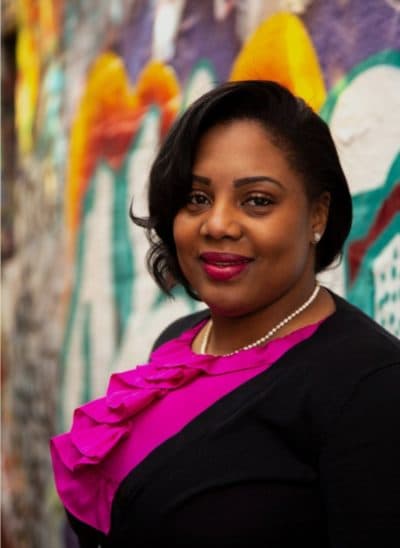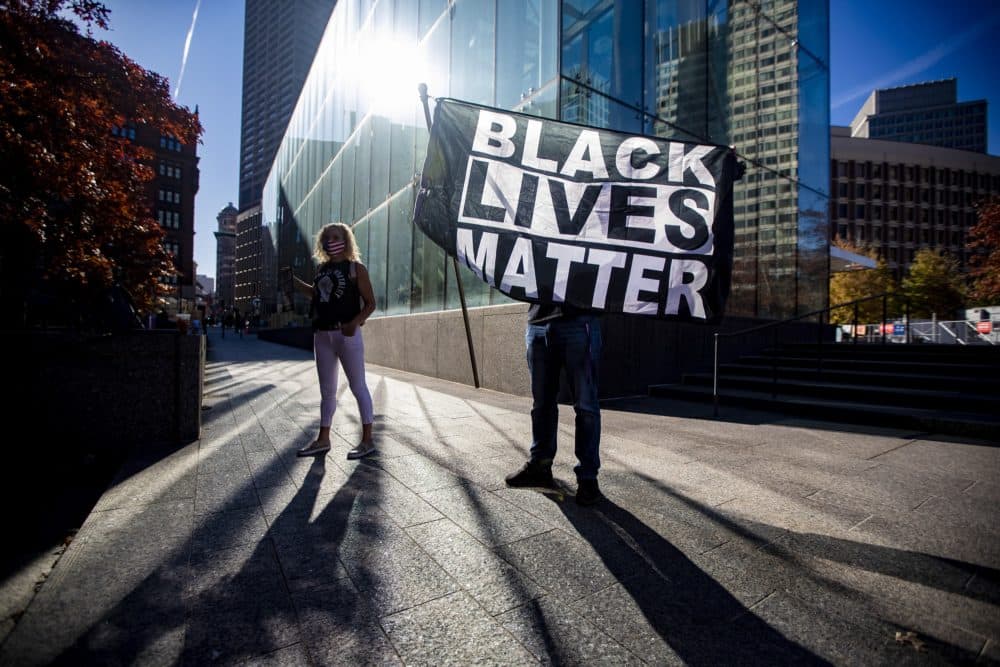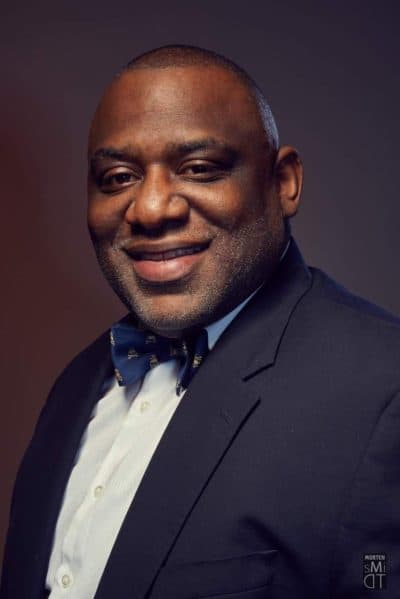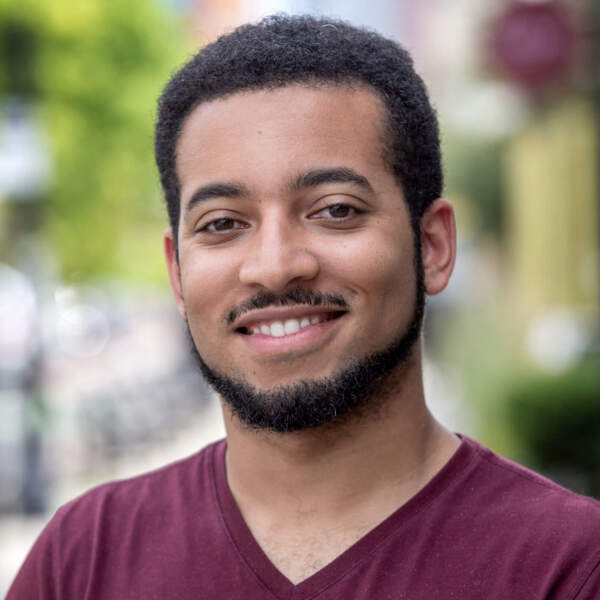Advertisement
With Biden-Harris Victory, Some Black Voters Say They Can 'Finally Breathe Again'
Resume
Cambridge native Ayesha Wilson remembers where she was on Nov. 7 when her mom called her with the news:
"I was in Target in Somerville," the 38-year-old recalls. "She was in tears and she was just excited to share with me that Joe Biden and Kamala Harris had been our elected new president and vice president."
Wilson, a school committee member in Cambridge and secretary of the city's NAACP branch, says her joy was mixed with relief: "It just felt like our community, our country, can finally breathe again."
But for Wilson — a Black woman in America — that phrase isn’t just a metaphor.
Not in a year when the coronavirus pandemic disproportionately affected the Black community and George Floyd pleaded “I can’t breathe” as he died at the hands of police.
54-year-old William Watkins, of Boston, understands.
"There's a lot of trauma that has happened not just in these four years, but over decades," said Watkins, who is director for workforce development with the Urban League of Eastern Massachusetts. "This time, right here, is different, though. It's front and center."
So Watkins and millions of other Black voters turned their pain into power at the polls to help push Biden into the White House.
"We can’t go back to the days of old... We’ve seen what 8 minutes and 40 seconds looks like."
William Watkins
In a post-election analysis by the Associated Press, 90% of Black voters surveyed (and 93% of Black women) said they cast their ballots for Biden.
That support helped Biden flip states like Georgia, Michigan and Pennsylvania from red to blue. Biden himself acknowledged in his Nov. 7 speech the role of Black voters not just in winning the presidential election but in becoming the Democratic nominee in the first place.
"Especially in those moments when this campaign was at its lowest ebb," said Biden, "the African American community stood up for me. They've always had my back, and I'll have yours."
And though traditionally Democratic-voting Massachusetts was never in doubt for Biden, Watkins says this election was a chance for Black voters everywhere to use their outrage over the deaths of Floyd, Breonna Taylor and other Black people to re-shape the Oval Office.
"We can’t go back to the days of old," Watkins said. "We’ve seen what 8 minutes and 40 seconds looks like, and I say that the knee was representative of Black America being under that foot."

Both Watkins and Wilson say they're especially counting on young voters to keep the momentum going.
That includes 18-year-old Kamil Sultan, now a freshman at UMass Boston.
"I voted because I knew it was about something bigger than me," explains Sultan. "I used to think my vote wouldn't impact much, but they wouldn't be trying so hard to keep us from voting if it didn't matter."
Two years from now, 16-year-old Ariella Taylor will be able to join him at the polls.
While Taylor couldn't vote in this election, she says she helped register hundreds of voters in communities of color with the Boston Community Action Team.
Taylor says she would have voted for the Biden-Harris ticket if she could have.
But she cautions that this administration and future candidates will have to prove themselves to the Black community to earn her vote.
"People go into communities of color and they say that they're going to make a commitment there," said Taylor. "But then when they're actually elected, we don't see that same trend. Because maybe you can appeal to Black voters doesn't mean you're for Black people."
During his campaign, Biden pledged to invest in African American businesses and end racial health care disparities.

Taylor says she hopes Vice President-elect Harris — the highest-ranking Black woman in U.S. history — will help hold Biden to those commitments.
And though she has some reservations about Harris' criminal justice record as California's attorney general, she says she’s proud to see a Black woman in the White House.
Ayesha Wilson agrees.
"As a Black woman, I see this as the possibilities for little Black girls and even just big Black girls like myself in terms of my own possibilities and hope, because I see possibility at the top," Wilson said.
But Wilson also says Biden’s victory won’t make her forget the last four years under President Trump, from his handling of the pandemic to what she saw as hostility toward the racial justice movement.
And she won't forget Trump still received more than 74 million votes despite all that.
William Watkins says he won't forget either. But he's still breathing a sigh of relief.
"The nightmare is over because we as Black and Brown people made our voices heard," he said.
Watkins recalls the words of late civil rights icon John Lewis, who said the right to vote is the most powerful nonviolent tool we have to create a more perfect union.
And Watkins hopes that somewhere, the man who marched the Edmund Pettus Bridge for the voting rights of Black Americans is smiling.
This segment aired on December 14, 2020.
